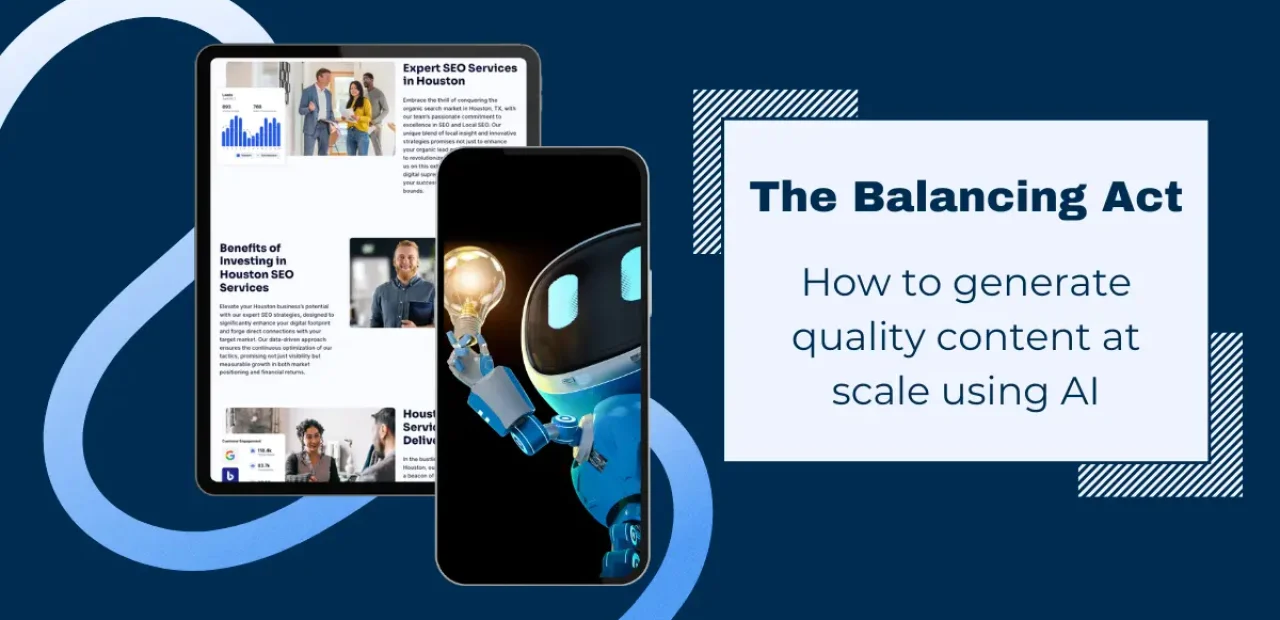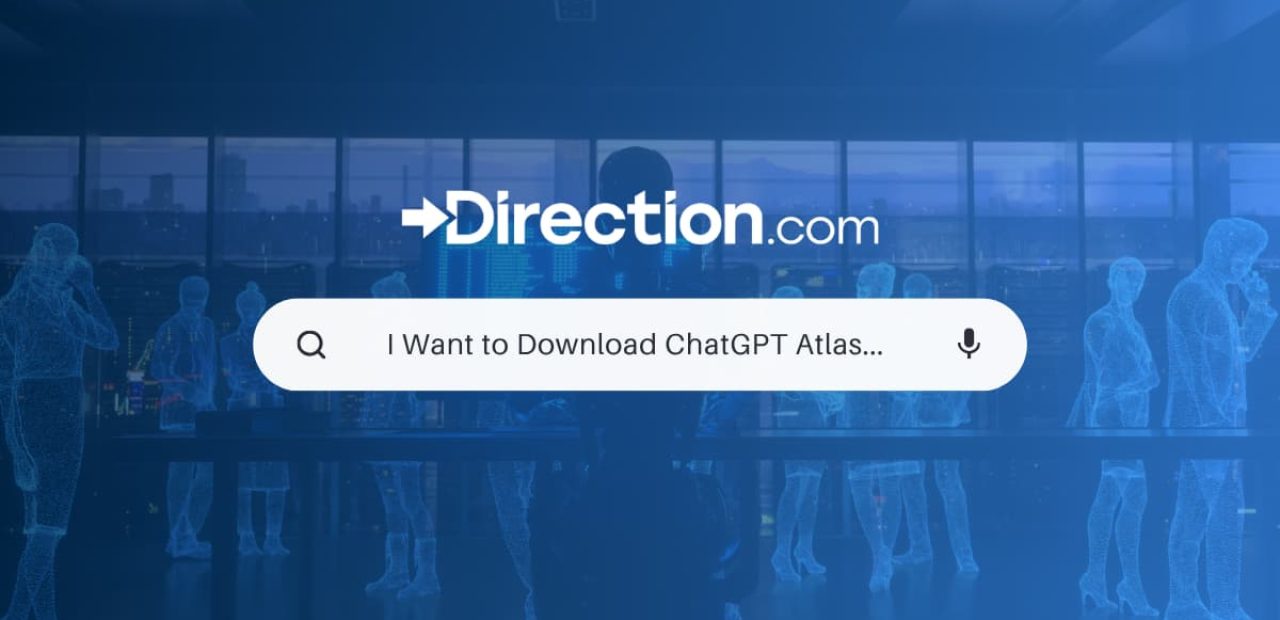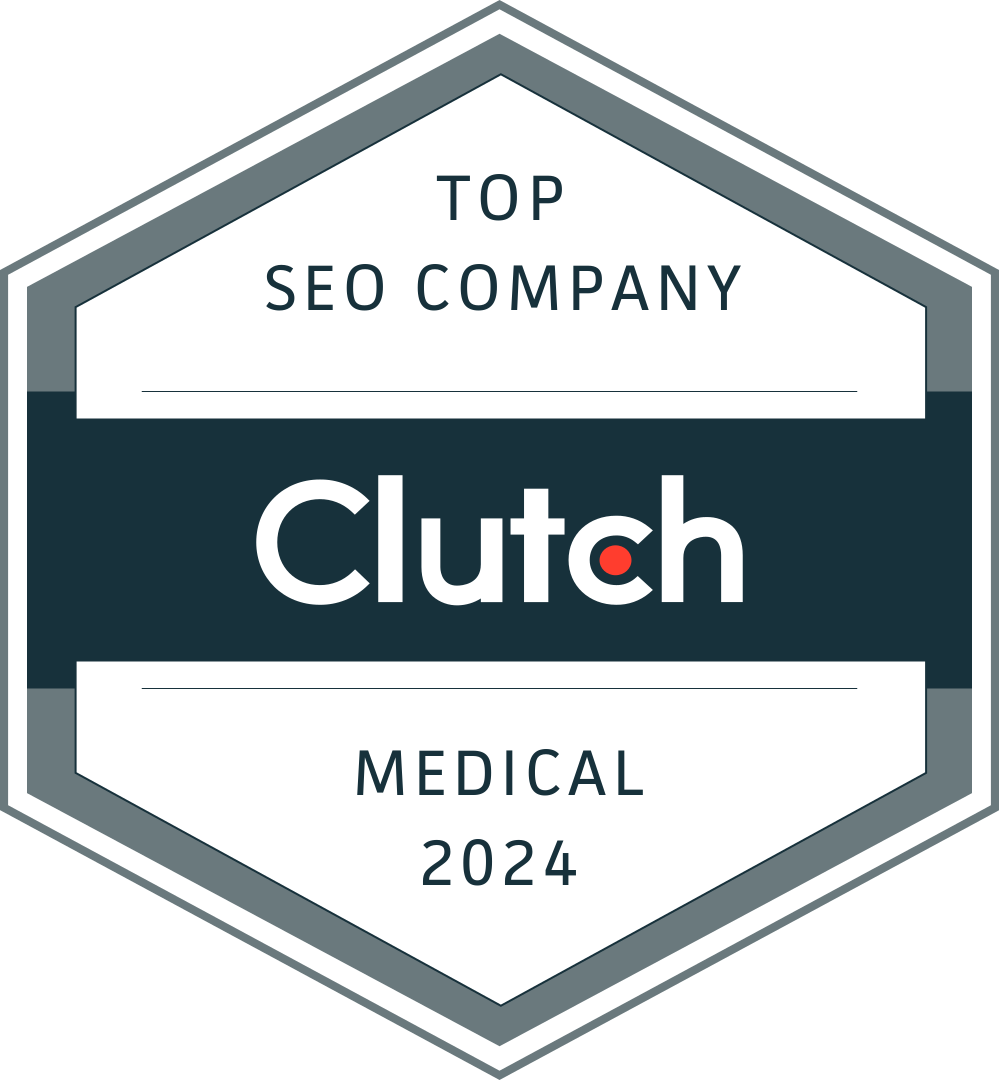Creating content at scale using programmatic SEO techniques allows businesses to dominate search results and reach their target audiences with unprecedented efficiency and accuracy.
Imagine producing hundreds, even thousands, of highly optimized landing pages in just a month-without the hassle of crafting each piece of content manually or worrying about missing key regional markets. This is the power of programmatic content creation: a scalable, efficient solution that delivers tailored, high-quality content to your target audience.
To fully unlock the potential of programmatic SEO, it’s essential to understand its key components, including how to combine automation, data, and strategy for optimal results. Learn more about the key components of programmatic SEO and how they drive success.
With programmatic content, you can precisely target specific industries and demographics, ensuring your brand’s message reaches the right audience at the right time. It’s not just about quantity; it’s about achieving quality at scale.
Key Takeaways from this guide:
- What is Programmatic Content for SEO? Understand the concept and why it’s a game-changer for scalable content creation.
- How Programmatic Content Supports SEO: Learn how automation can help improve rankings, traffic, and user engagement.
- Benefits of Programmatic Content: Discover how it saves time, boosts efficiency, and helps dominate niche markets.
- Challenges to Overcome: Address common pitfalls like duplicate content, quality control, and maintaining user relevance.
- Steps to Build a Programmatic Content Strategy: Get actionable advice on setting up your programmatic content framework.
By leveraging the techniques outlined in this post, you’ll discover how programmatic content can transform your SEO strategy, allowing you to scale efficiently and stay ahead of the competition. Let’s dive into the details of this innovative approach.
What is Programmatic Content Creation?
Programmatic content creation is an advanced method of generating large volumes of high-quality content through the use of automated technologies, such as artificial intelligence (AI) and big data analytics. This approach contrasts with traditional content creation, which typically involves manual effort and is often time-consuming and resource-intensive.
Programmatic content creation is particularly beneficial for businesses that need to generate a large amount of content quickly, such as e-commerce sites, service-based businesses with multiple locations, and industries that require frequent updates to stay relevant.
By automating the content creation process, businesses can focus on strategic initiatives while ensuring their content remains fresh, engaging, and effective in driving organic traffic.
Advantages of Creating Content at Scale
Scaling content production isn’t just about increasing volume-it’s about creating consistent, high-quality content that resonates with your audience and supports your SEO strategy. Programmatic content empowers businesses to meet the growing demands of digital marketing while maintaining relevance and precision. Below, we’ll explore the key advantages of scaling your content creation efforts and how it can transform your online presence.
Produce Large Volumes of Content Quickly
One of the biggest advantages of programmatic content for SEO is the ability to generate massive amounts of content in a fraction of the time it would take using traditional methods.
This efficiency allows you to populate your website with fresh, relevant content rapidly, keeping up with the fast-paced digital landscape and staying ahead of competitors.
Maintain a Uniform Voice and Style Across Content
Maintaining a consistent brand voice and style is crucial for building a strong online presence. Programmatic content ensures that every piece of content adheres to your brand guidelines, creating a cohesive user experience. This uniformity helps in establishing trust and recognition among your audience.
Use Big Data to Target Specific Demographics and Regions
Programmatic SEO leverages big data to hone in on specific demographics and geographic regions.
By analyzing vast amounts of data, you can tailor your content to meet the unique needs and preferences of your target audience. This precision targeting leads to higher engagement rates and more effective marketing campaigns.
Easily Expanding Content Efforts as Needed
As your business grows, so too will your content needs. Programmatic content creation offers unparalleled scalability, allowing you to effortlessly increase your content output without sacrificing quality.
Whether you need to target new markets or expand your service offerings, programmatic SEO can scale with your business.
Reduce the Cost per Piece of Content Through Automation
Creating high-quality content traditionally requires significant time and resources. However, programmatic techniques automate much of this process, drastically reducing the cost per piece of content.
This cost-effectiveness means you can allocate your budget more efficiently, investing in other areas of your business while still reaping the benefits of robust SEO content.
How Programmatic Content Differs from Traditional Content Creation
Traditional content creation relies heavily on manual processes, where each piece of content is crafted individually, requiring significant time and resources. In contrast, programmatic content leverages automation and data to produce content at scale, allowing businesses to meet the growing demands of modern digital marketing. Below, we’ll break down the key differences between these two approaches and explore how programmatic content transforms the way businesses create and distribute content.
Manual vs. Automated Processes
Traditional content creation is labor-intensive, requiring writers to research, draft, and edit each piece manually. This method, while effective, is time-consuming and limits the volume of content that can be produced.
Programmatic content creation, on the other hand, utilizes AI and data-driven algorithms to generate high-quality content at scale, freeing up your team to focus on strategic planning and creative tasks. To ensure this content maintains a natural, relatable tone, AI humanizers can refine machine-generated text by adding emotional nuance, contextual relevance, and a more authentic human voice.
Programmatic Content Can Zero In on Niche Markets Rapidly
One of the standout features of creating content using programmatic techniques is the ability to target niche markets with pinpoint accuracy.
Traditional methods often rely on broad keyword research and general audience targeting, which can miss out on specific segments. Whereas, programmatic SEO uses big data to analyze user behavior, preferences, and trends, enabling you to create content that speaks directly to niche audiences.
One method we’ve recently deployed at Direction.com is targeting specific cities in a region. We start by sourcing our city list based on population and search intent. From there, we hone in on low difficulty keywords with decent monthly search volume.
Due to the low competition around these terms, we’re able to generate page 1 rankings on Google for terms like “Best SEO Company Houston” in a week’s time. Multiply this by hundreds of cities across multiple regions, and what we’ve accomplished is a highly-targeted presence for those looking for SEO experts in their area.
Keeping Content Relevant and Up-to-Date with Minimal Effort
Keeping content current is a major challenge in traditional content creation. Often, older posts and pages become outdated, negatively impacting your SEO efforts.
Programmatic SEO addresses this issue by enabling dynamic content updates. Automated systems can continuously refresh and optimize content based on the latest data and trends, ensuring that your website remains relevant and authoritative without requiring constant manual intervention.
7 Types of Content That are Perfect for Programmatic Content Creation
Programmatic content creation thrives when applied to certain types of content that benefit from scalability, automation, and data-driven precision. These content formats not only maximize efficiency but also ensure relevance for diverse audiences and geographic regions. Below, we’ll explore seven types of content that align perfectly with programmatic strategies and explain why they work so well.
1. City Landing Pages Covering a Region
For businesses targeting multiple cities within a region, creating individual landing pages for each location can significantly boost local SEO. Programmatic SEO can generate these city-specific pages quickly, ensuring each one is optimized for local search terms and includes relevant information tailored to the audience in that area. This approach helps capture local traffic and increases visibility in regional search results.
2. Product Pages for E-commerce
E-commerce sites can benefit greatly from programmatic SEO by creating optimized product pages at scale. Each page can be tailored with specific product descriptions, keywords, and metadata to improve search engine rankings and enhance the user experience. This automation allows e-commerce businesses to keep up with large inventories and frequent product updates without sacrificing SEO quality.
3. Real Estate Listing Pages
Real estate websites require constant updates with new property listings. Programmatic SEO can streamline this process by automatically generating listing pages for each property, complete with optimized content such as descriptions, features, and location details. This ensures that listings are SEO-friendly and easily discoverable by potential buyers searching for properties in specific areas.
4. Service-Based Business Pages
Service-based businesses that operate in multiple locations can use programmatic SEO to create location-specific service pages. Each page can highlight the services offered in that particular area, along with customer reviews, contact information, and localized keywords. This strategy helps attract local customers and improves the overall SEO performance of the business website.
5. Industry-Specific Content
For businesses serving multiple industries, programmatic SEO can produce industry-specific content at scale. This includes articles, case studies, and whitepapers tailored to the unique needs and interests of different industry sectors. By targeting specific industries with relevant content, businesses can establish authority and attract a more engaged audience.
6. Blog Posts and Articles
Maintaining an active blog with fresh, relevant content is essential for SEO. Programmatic SEO can automate the creation of blog posts and articles, ensuring they are optimized for search engines and cover a wide range of topics. This helps keep the website updated regularly, drives organic traffic, and engages visitors with valuable information.
7. Dynamic FAQ Pages
Frequently Asked Questions (FAQ) pages are a great way to address common customer queries and improve SEO. Programmatic SEO can generate dynamic FAQ pages that are regularly updated with new questions and answers based on user search data and trends. This keeps the content fresh and relevant, enhancing the user experience and boosting search engine rankings.
5 Steps to Implement Programmatic SEO and Create Content at Scale
Implementing programmatic SEO requires a well-structured approach to ensure both scalability and quality. By following a clear framework, businesses can streamline their content creation process, target niche audiences effectively, and maximize their SEO potential. Below, we’ll outline five essential steps to help you successfully implement programmatic SEO and create high-impact content at scale.
Step 1: Collect Data
- Understand who your target audience is, including demographics, interests, and behaviors.
- Use tools like Google Analytics, SEMrush, and social media insights to gather data on user behavior, search trends, and competitive analysis.
- Break down the data into actionable segments based on location, industry, or user intent.
- Store and organize your data in a centralized database for easy access and analysis.
Step 2: Design Flexible Templates for Content Generation
- Review your current content to identify patterns and successful formats.
- Decide on the structure for each type of content you need, such as landing pages, product descriptions, or blog posts.
- Design templates that include placeholders for dynamic content elements like keywords, locations, and product details.
- Ensure each template follows SEO best practices, including optimized headers, meta descriptions, and internal linking.
Step 3: Use AI Tools to Automate Content Creation
- Select an AI content generation tool that fits your needs, such as OpenAI’s GPT, Jasper, or other specialized SEO tools.
- Connect your AI tool to your data repository to ensure it has access to the necessary information for content creation.
- Use your collected data and templates to train the AI tool on the types of content you need.
- Start generating content using the AI tool, ensuring that it fills in the templates with accurate and relevant information.
Step 4: Quality Check Your Content Outputs
- Establish clear guidelines for what constitutes high-quality content, including readability, accuracy, and SEO optimization.
- Manually review a sample of generated content to check for errors and adherence to guidelines.
- Use automated tools to check for issues like grammar errors, keyword stuffing, and duplicate content.
- Continuously gather feedback from your team and refine the AI tool to improve content quality over time.
Step 5: Updated and Improve Content Based on Performance Data
- Use analytics tools to track the performance of your content in terms of traffic, engagement, and conversions.
- Analyze the data to identify which content is performing well and which needs improvement.
- Implement a schedule for regular content updates, ensuring that the information remains current and relevant.
- Use insights from performance data to make targeted optimizations, such as updating keywords, improving CTAs, or enhancing readability.
- Continuously test different content strategies and iterate based on what works best for your audience.
Mosaic by Direction.com: Revolutionizing Programmatic SEO
Mosaic, our cutting-edge programmatic SEO solution, is designed to revolutionize your content creation process. By leveraging advanced AI and big data analytics, Mosaic empowers your business to scale content production while maintaining precision and quality.
How Mosaic Works
Mosaic integrates seamlessly with big data sources and AI algorithms to deliver highly optimized content tailored to your business needs. Here’s how it works:
- Keyword Identification: Mosaic analyzes user behavior, search trends, and competitive landscapes to identify high-potential keywords and phrases.
- Demographic Targeting: Content is tailored to specific demographics and geographic locations, ensuring maximum relevance.
- Continuous Optimization: Mosaic regularly updates and refines content based on the latest data to stay ahead of search trends.
- Brand Consistency: Every piece of content aligns with your brand voice and SEO objectives.
Benefits of Using Mosaic for Your Business
Setting up and managing a programmatic SEO strategy can be resource-intensive, but Mosaic simplifies the process by providing a fully managed solution. Here’s why Mosaic stands out:
- Expert Management: Direction.com handles every aspect of setup, maintenance, and optimization, so you don’t have to.
- High Efficiency: Mosaic rapidly generates high-quality content, enabling your business to scale its SEO efforts with ease.
- Precision Targeting: By leveraging big data and AI, Mosaic ensures your content resonates with the right demographics and locations, driving higher engagement.
- Consistent Quality: Rigorous quality control measures guarantee that every piece of content meets the highest standards.
- Cost-Effectiveness: Automating the content creation process reduces costs significantly, providing an impressive return on investment.
Real Results with Mosaic: Elevate Holistics Case Study
Elevate Holistics, a telehealth provider specializing in medical marijuana consultations, leveraged Mosaic to scale their content and boost their online visibility. The results speak for themselves:
- Increased Organic Traffic: Elevate Holistics experienced a significant surge in local organic traffic, leading to more qualified leads and appointments.
- Improved Search Rankings: Programmatically generated pages targeting location-specific keywords allowed them to dominate search results in multiple markets.
- Precision Targeting: Mosaic’s data-driven approach enabled the creation of highly relevant content tailored to specific demographics and regions.
Read the full case study to learn how Elevate Holistics used Mosaic to transform their SEO strategy.
Watch the video below to see how Mosaic empowered Elevate Holistics to achieve their goals:
YouTube Video: Elevate Holistics Case Study
Why Mosaic is the Ideal Programmatic SEO Solution
With Mosaic, you can focus on growing your business while we handle your SEO strategy. By combining advanced technology with expert management, Mosaic delivers scalable, impactful content that drives real results.
Maximizing Your SEO Potential with Programmatic Content
Programmatic content creation has the power to revolutionize how businesses approach SEO. By combining unmatched efficiency with precision targeting, it enables you to create highly optimized content at scale. Throughout this article, we’ve explored the benefits of this strategy, from producing city-specific landing pages to crafting product descriptions, service-based pages, and more.
With these capabilities, programmatic SEO becomes an essential tool for businesses aiming to dominate their market, improve search engine rankings, and reach their target audience with accuracy and impact. By leveraging solutions like Mosaic, your business can harness the full potential of programmatic content to achieve both scalability and quality.
Take the Next Step with Mosaic
If you’re ready to unlock the power of programmatic content creation, let Mosaic by Direction.com guide the way. Schedule a call with our team today!
- What We Offer: We’ll assess your current organic presence, provide an in-depth SEO analysis of your website, and outline actionable steps to boost your search visibility.
- Why Mosaic: Learn how our cutting-edge solution delivers unmatched performance, helping you scale your content production without compromising on quality.
Schedule a Consultation and take the first step toward transforming your SEO strategy.
Frequently Asked Questions About Programmatic Content for SEO
1. What types of businesses benefit most from programmatic content?
Programmatic content works well for industries that require scalable, location-specific, or highly targeted content. Examples include e-commerce businesses, real estate agencies, healthcare providers, and service-based companies with multiple locations or offerings.
2. Is programmatic content suitable for small businesses?
Yes, programmatic content is scalable, making it ideal for small businesses aiming to grow their online presence efficiently. By automating content creation, even small businesses can target niche markets and improve local SEO without the need for extensive resources.
3. How do I ensure quality when scaling content with automation?
Maintaining quality requires a robust strategy, including well-defined templates, thorough data analysis, and regular reviews. Tools like Mosaic by Direction.com ensure every piece of content aligns with brand voice, audience needs, and SEO best practices.
4. Can programmatic content replace traditional content creation entirely?
No, programmatic content complements traditional content creation. While it’s excellent for scaling repetitive or location-specific pages, traditional content is still essential for unique, in-depth pieces like thought leadership articles or brand storytelling.
5. What makes Mosaic different from other programmatic SEO tools?
Mosaic combines advanced AI, big data analytics, and expert management to deliver high-quality, scalable content tailored to your business goals. Unlike generic tools, Mosaic offers precision targeting, seamless integration, and consistent quality, ensuring maximum ROI for your SEO efforts.






